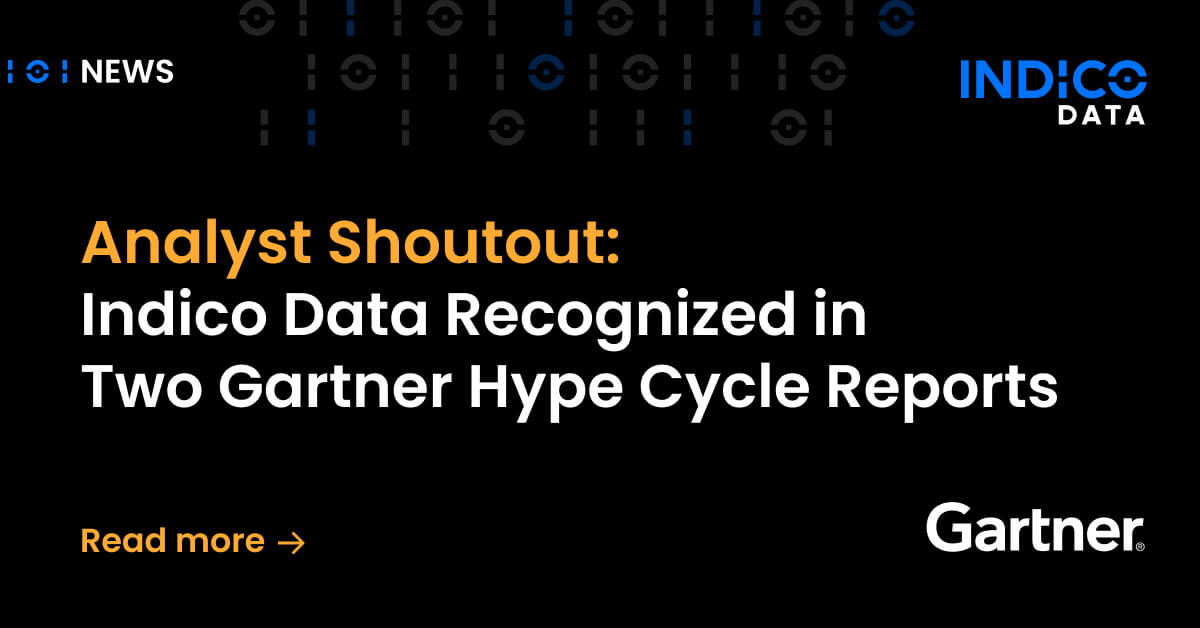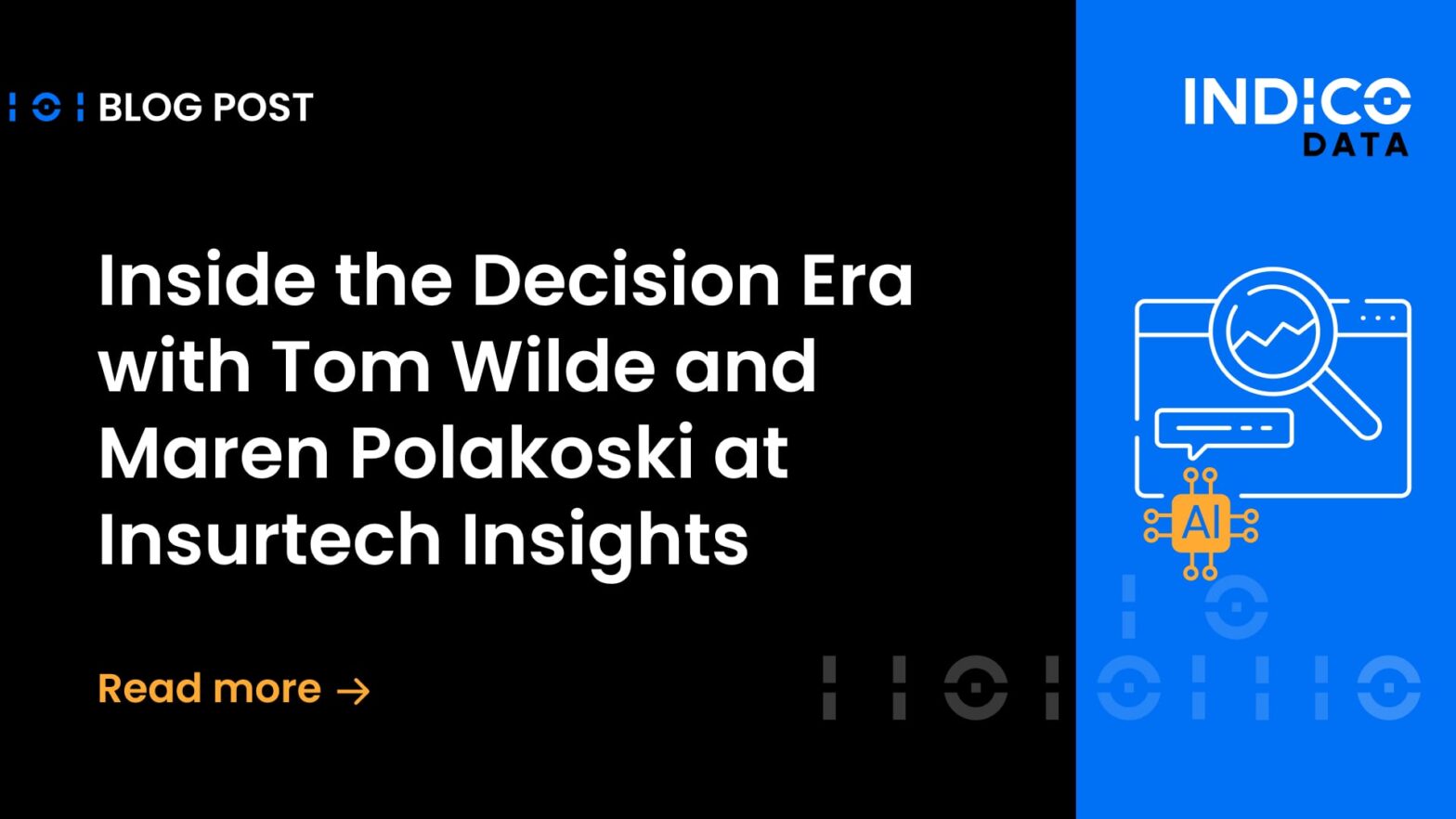As our contribution to the never-ending process of educating stakeholders on the value of intelligent automation as it applies to unstructured data, Indico Data has launched a new podcast series. Titled “Unstructured Unlocked,” the series will feature a rotating cast of automation and artificial intelligence experts expounding on how to get the most of intelligent automation technologies intended for unstructured data.
I’ll be hosting the podcast, and inviting all sorts of folks to join me: practicing AI and automation experts from leading enterprise companies, including (but not limited to) Indico Data customers and partners, along with industry analysts and consultants. My first guest was Meno Hellis, a Business Transformation & Data Strategy Consultant who formerly worked for companies including Manulife, The Citco Group of Companies, and IRESS Market Technology.
Listen to the full podcast here: Unstructured Unlocked episode 1 with Meno Hellis
Our wide-ranging discussion focused on topics including how automation centers of excellence (COEs) can best work with business units (and vice versa), how to measure success of intelligent automation projects, how to find good candidates for automation projects, why so many artificial intelligence projects fall short, and more.
In this post, I’ll touch on some of those topics from the first podcast but strongly encourage you to listen to the entire episode on your favorite podcast platform.
Reducing headcount while increasing scalability
Perhaps one of the most striking exchanges was when I asked Hellis about a project he was most proud of.
“With enterprise workflow solutions, we’ve seen turnover rates drastically reduced and we’ve seen people improve their skill sets,” Hellis said.
As I said in the podcast, that was great to hear because there’s been a lot of fear in the market about bots replacing humans. But the bots are usually just taking on jobs humans don’t need or want to be doing.
“Or can’t keep up with,” Hellis added. As companies undergo digital transformation, putting more and more applications online, they are dramatically increasing the amount of data they need to deal with. The same goes for companies seeking to take a 360-degree view of their customers, covering communication avenues including email, video, and text. That creates an inordinate amount of data that needs to be captured and processed.
“I just don’t see how you can have your human resources manage all that complexity,” he said.
How COEs and business units can get along
The podcast also touched on a number of COE topics, including what works well in terms of the way COEs work with business units. It all comes down to proper governance, having a roadmap and clearly defined roles, he said. After that, it’s a process of continuous improvement.
Given most intelligent process automation problems have never been solved before, a good COE will have a mindset of continuous learning. That means reflection after each project, to learn how the next one can be done better, faster and more cost-effectively.
That constant reflection applies to the technology stack in use as well. “There’s always a flavor of the month,” Hellis said. “It could be RPA now, it could be analytics visualization. It’s important to have a tech stack that’s continuously being examined,” so you can identify new technologies that can better match your needs.
In terms of what business units do wrong in working with COEs, most often it gets down to setting the right expectation. With all the industry buzz about low-code and no-code automation tools, business leaders may get the idea that automation projects can be implemented more quickly than reality dictates.
There is a role for the citizen developer, who is basically a process automation expert who has been taught how to use a given automation tool. “But if you want to build an enterprise application, if you want to solve for automation end-to-end, you need technology partnerships, especially for critical elements like security and performance,” Hellis said.
Related content: Automation center of excellence tips for success when working with lines of business
Finding candidates for intelligent automation projects
Finally, Hellis had good advice for how to find viable use cases for intelligent automation technology. Characteristics that make a process a good candidate include:
- Requires manual interaction with one or more IT systems or applications
- Repetitive in nature
- Occurs with significant frequency
- Prone to human error
- Can be performed at any time of day, to maximize utilization of automation tools
Hellis also recommended looking at processes that are logic or rule-based, but acknowledged that tools do now exist that can deal with processes that involve more human judgment (such as the Indico Unstructured Data Platform).
Once you assemble project candidates, he recommends mapping them out in a grid similar to the Gartner Magic Quadrant. Projects in the bottom left quadrant are high in complexity and low in value while those at top right are high in value and low in complexity. Invoice processing, for example, is high in value, both because it’s high-volume and is a high-value function (it has to be done) and is relatively low in complexity.
That’s just a sampling of the in-depth content we covered in the first episode of Unstructured Unlocked. I encourage you to listen and subscribe via your favorite platform, including:
Read the full transcript of the podcast here.


